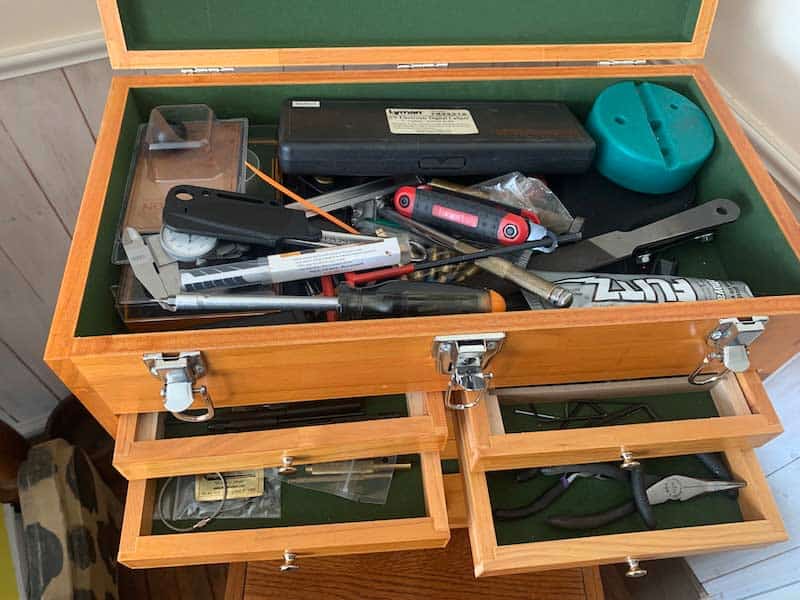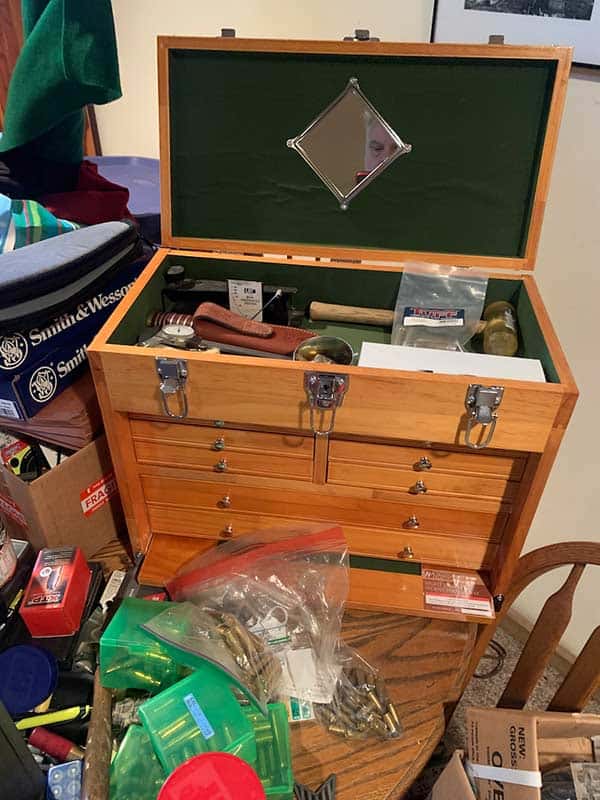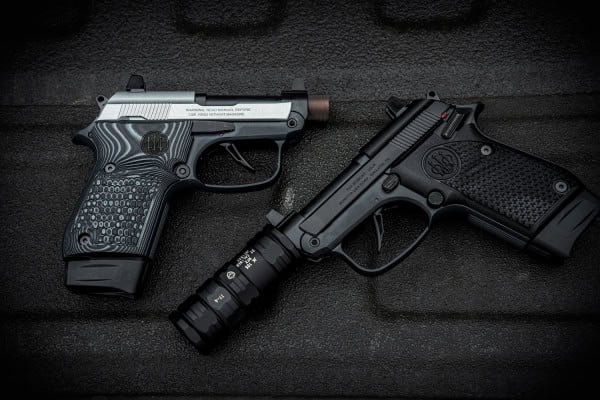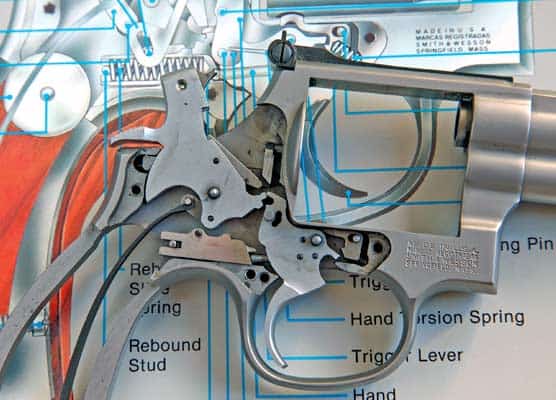A Better Box for Pocket Pack Rats
Pockets were the keepers of the sacred treasures we found as boys. It didn’t matter if we knew what the item was for or what function it served; if it looked interesting, we’d shove it in our pocket for closer examination at home. We’d usually forget about these treasures until our moms found them when going through our pockets while doing laundry.
It only takes washing one found fountain pen, ruining the entire load of wash, to reinforce a mom’s pocket searches better than any state penitentiary prison guard searching a felon at receiving.
Family Tradition
Most people are blind to free treasures, but for some, pocket hoarding carries over as we get older. I guess it runs in the genes because my grandpap was a world-class scrounger. He had a knack for finding all kinds of cool stuff and lugging it home in his pick-up truck. As a dairy farmer who lived through the great depression, he didn’t believe in waste. He was resourceful and handy. He could build a perfectly square barn, stick by stick, without plans. All he needed was his folding ruler and basic hand tools, most of which were found on the road. He’d stop, pick it up, evaluate it, and throw it in the bed of his truck if he felt he could use it.
Screwed
I would do the same thing as a cop. Of course, I had reason to, as it was a road hazard, but I still came up with some good stuff over the years. For instance, 30 years ago, I received a call about a five-gallon bucket lying in the road. The bucket had several dividers inside separating all kinds of assorted nails and screws. But now they were spilled everywhere. I used a flat shovel, scooping all the hardware back in the bucket, along with the dividers. It was one of the best scrounges ever, as I’ve used practically every screw and nail in that bucket over the past 30 years.
However, there is a downside to scrounging. Eventually, you run out of space. There comes a time when every horizontal surface gets filled up. You start adding more horizontal space by adding shelves, which works for a few years, until they get filled up, too. This is especially true when you’re a handloader and gun tinkerer.
Lost in Space
You know who you are! You’re the kind of guy who checks the range buckets for spent brass as soon as you get to the range. Your accumulation of brass is a spreading, heaping and growing mass. Even after separating it, it’s getting hard to manage. Add to it hundreds of pounds of different styles and calibers of cast bullets, and it gets darn right scary. Smaller items, such as tools or gun parts have a knack of finding their way between the varying containers of brass and bullets, playing hide and seek.
Check Your Drawers
We’ve all been there. You know you have it, you just don’t know where it’s at? It’s sorta’ like never being lost. You may not know where you are now, you’re just a tad confused.
For these smaller, more precious items, I found a dandy solution. I got the idea from my friend Ken Kelly of Mag-Na-Port. He has a dozen or so Kennedy tool chests in his large shop. These tool chests were popular in the mid-’50s and have several drawers for the intricate machinists’ tools he uses daily.
Ken is the king of scroungers, yard sales and bargaining. He’ll buy the whole lot of a pending sale, keep what he wants, and then swap, trade or sell the leftovers. So, I started looking for Kennedy tool chests on eBay. Even old, decrepit tool chests carried hefty prices, especially when shipping is calculated for the bulky piece.
One day while perusing the ads for Harbor Freight, I saw it — a wooden, multi-drawer machinist tool chest for $84.99. With a 25% off coupon, it really was a bargain. Now more in my price range, I ordered one. The Windsor has eight felt-lined drawers and is perfect for storing the things I have a tendency to misplace and waste time searching for. Plus, it closes, hiding everything that used to sit on the kitchen table, keeping my very understanding wife happy.
At any one time, it’s not uncommon for me to have various boxes of ammo, cast bullets, spent brass, dial calipers, targets, gun screwdrivers, or Allen keys sitting on surrounding tables, chairs or shelves.
My Windsor tool chest keeps everything neat and out of sight for “current status” projects. In fact, I love the tool chest so much that I bought a second one for downstairs, too! A couple of years ago, I found a steel Waterloo multi-drawered machinist tool chest for my gunsmithing tools priced reasonably on eBay. While not a Kennedy chest, it works for me.
Disgust or Understanding?
I know some will fall into two categories after reading this: those who understand and those former USMC readers with OCD tendencies who shudder at the very thought of seeing such disorder and mess. But, hey, I’m trying. I’m slowly, but surely, getting things organized enough that I’m not buying the same lost tool for the second or third time. At least most of the time.
The Windsor Design boxes from Harbor Freight are made of hardwood. Don’t expect a cherished oak Gerstner tool chest. Though I’d love to have one or two myself, that would cut into gun, powder and primer money. Look around, check out yard sales, and just maybe you’ll stumble onto a Kennedy, Gerstner or other tool chest to organize your prized treasures — or at least help you find them when looking for them. And if all else fails, you can always stick it in your pocket.









